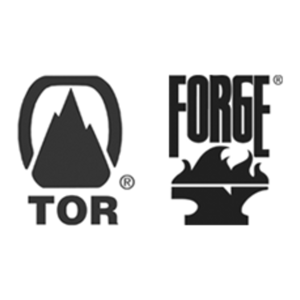One publisher does not a trend make, but Macmillan imprint and science-fiction house Tor/Forge’s decision to abandon DRM this July may be a sign of things to come. Tor/Forge is dropping DRM because its customers, and authors, have been asking for DRM-free titles. The game isn’t won yet, but it’s a safe bet that Tor/Forge won’t be the first to abandon Digital Rights Management for e-books and other publications.

The Department of Justice’s suit against Apple, et al, over e-books has restarted the discussion about the usefulness of DRM versus its unintended consequences. Specifically, by embracing DRM, e-book publishers have unwittingly helped provide Amazon with far more power over the nascent e-book market than is healthy for anyone (except Amazon). Since Amazon’s DRM works only with Kindle readers, all of the DRM-encumbered e-books purchased through Amazon effectively lock readers into the Kindle platform.
Tor/Forge is primarily a publisher of science fiction and fantasy titles. Because it serves a slightly geekier and DRM-averse audience than many other publishers, it makes sense for Tor/Forge to be one of the first anti-DRM publishers out of the gate. As the company noted in its blog, “[DRM] prevents [readers] from using legitimately-purchased ebooks in perfectly legal ways, like moving them from one kind of e-reader to another.”
Note that Tor/Forge isn’t the first publisher to go DRM-less. Tech publisher O’Reilly has been selling its e-books DRM-free for years. Carina Press (a digital imprint from Harlequin) doesn’t use DRM either.
But Tor/Forge is one of the first, if not the first, to have embraced DRM and thought better of it later. And it’s part of the Big Six book publishers.
The decision is coming from way up top the publishing chain. Tor/Forge is under the Macmillan umbrella, and as Charlie Stross writes in his thoughts on the move, “the final decision to drop DRM on ebooks from Tor/Forge was taken by John Sargent, CEO of Macmillan, who ultimately has to account for his actions to the shareholders.”
What About Infringement?
Going DRM-free can help solve the problem of lock-in to a single provider, but what about infringement? DRM’s effect on piracy may be a red herring. As publishers already know, DRM isn’t really that effective at stopping e-books from showing up on torrent networks, etc. The DRM on e-books can be cracked, easily. It’s a pain in the posterior for consumers, but less than a speed bump for someone intent on distributing e-books.
John Scalzi, an author who has a number of books published by Tor, will see his Redshirts e-book go DRM-free from day one. Scalzi says that he’s not concerned, and that Tor has been busy fighting online misappropriation for some time:
As an author, I haven’t seen any particular advantage to DRM-laden eBooks; DRM hasn’t stopped my books from being out there on the dark side of the Internet. Meanwhile, the people who do spend money to support me and my writing have been penalized for playing by the rules. The books of mine they have bought have been chained to a single eReader, which means if that eReader becomes obsolete or the retailer goes under (or otherwise arbitrarily changes their user agreement), my readers risk losing the works of mine they’ve bought. I don’t like that. So the idea that my readers will, after July, “buy once, keep anywhere,” makes me happy. I had been planning to ask Tor whether or not it would be feasible to offer my e-books without DRM; now I won’t have to have that conversation.
Salvation for Independent Bookstores?
E-books have also been less than a blessing for independent bookstores. Here in St. Louis, the indie stores have formed an alliance to try to bolster sales in the face of the e-book trend and competition from Amazon. But the writing is on the wall – customers want e-books more, and real books less. That’s a problem for indies right now.
If publishers abandon DRM, though, e-books might actually benefit independent bookstores. Stross writes, “Right now, there is a window of opportunity for smaller resellers: Amazon’s inclusion of masses of self-published material in the Kindle store has made it impossible for heavy consumers to browse it effectively. Smaller bookstores may be able to gain a strategic edge by curating their content, providing quality control on reviews, and other tactics we can’t predict at this time.”
That’s not a sure thing – as Stross admits – but it gives indies at least some shot at fighting against the Big Three (Apple, Amazon and Barnes & Noble) than they have now.
The Big Question
The big question is whether Apple and Barnes & Noble are going to embrace DRM-free e-books. Amazon already allows publishers to go DRM-free if they wish.
Offering e-books in DRM-free formats may be a selling point, just as dropping DRM from digital audio was a few years ago. It took Apple quite awhile to get on board, but it did eventually.
It’s early, but the tea leaves seem to indicate that more and more e-book publishers are souring on DRM. It may take time for DRM to disappear, but it’s got very little to recommend it. Let me know if you think e-book DRM has a future.










